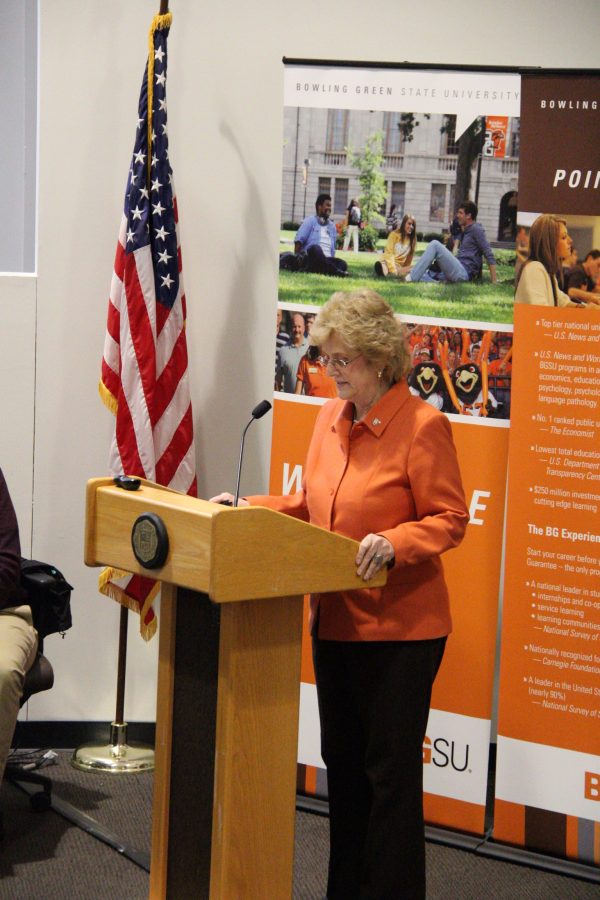President Mary Ellen Mazey has announced that she will not support the circulating petition to make the University a sanctuary campus.
“As a public university, we must, and are required to, follow all laws,” Mazey said. “And therefore we will work within the federal laws, and I will not support the petition to become a sanctuary campus.”
All international students on campus have completed all necessary documentation before their arrival, and therefore would be unaffected by a sanctuary campus, Mazey said.
Mazey does, however, support the BRIDGE Act currently on the floor of the US Senate. If passed, the BRIDGE Act would provide some additional protections for individuals currently protected under the Deferred Action for Childhood Arrivals program.
“We do support the BRIDGE Act before the U.S. Senate. We will continue to work with the DACA students, but we must do so through the legislative process,” Mazey said at the Faculty Senate meeting this afternoon.
About 68 percent of the budget at the University is tied to federal funding, according to Mazey. She said all federal law should be followed to guarantee that funding is safe.
Separately, Provost Rodney Rogers also spoke to Faculty Senate members, addressing a potential change in the academic calendar. Currently, the University is one of only four public universities in Ohio with a 16-week semester – most other schools have a 15-week semester.
“At this point, everything is looking very positive toward moving to a 15-week term,” Rogers said.
This would allow the University to be aligned with the University of Toledo, which is also changing to a 15-week semester starting in the fall of 2017.
The earliest the University would move to a 15-week term is fall of 2018, Rogers said.
Moving to a 15-week term would also allow for a January intersession before spring break, commonly referred to as a J-term.
Rogers hopes that the final decision to change the term length and add this intersession will be made soon so that planning can begin.
Mazey also addressed the recent passage of an Ohio law that will allow on-campus concealed carry of weapons by those with concealed carry licensees, if approved by a college or university’s board of trustees. Mazey said that she will not endorse any change to the University’s current policy which prohibits concealed carry on campus.
The senate also anticipates Governor John Kasich to release the state budget for the next two years around the next time Faculty Senate meets in February.
“(The state budget) probably will be a zero percent increase,” Mazey said. “We don’t know what that means in terms of raising tuition, so we’ll just have to wait and see.”
The University saw a retention rate of 91 percent in the freshman class from the fall semester to the spring semester, Mazey said. Applications for the fall semester are up 4 percent from this time last year, which indicates a likelihood for freshman enrollment to once again increase from the previous year.
Faculty Senate’s next meeting is Feb. 7 at 2:30 p.m. in the McFall Gallery.














